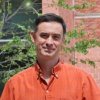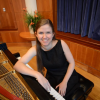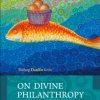Janko Nikolich-Zugich received his MD from Belgrade University Medical School in 1984, subsequently receiving an MSc and a PhD in Immunology from the same University. Dr. Nikolich-Zugich worked from 1987 to 1990 as a Research Associate at the Scripps Clinic and Research Foundation in the laboratory of Dr. Michael J. Bevan, FRS, NAS, HHMI. In 1990, he joined the Memorial Sloan-Kettering Cancer Center in New York as the Head of both the Flow Cytometry Core Facility and the Laboratory of T Cell Development. He served as an Assistant Professor (1990-1996) and an Associate Professor (1996-2001) at both the Cornell University Graduate School of Medical Sciences and the Division of Molecular Medicine in Cornell University School of Medicine.
He was recipient of the Pew Biomedical Scholar Award and the Louise and Allston Boyer Young Scientist Award. Dr. Nikolich-Zugich moved to the Oregon Health & Science University in 2001, assuming position of Senior Scientist at the Vaccine and Gene Therapy Institute and joint appointments as a Professor (tenured) in the Department of Molecular Microbiology and Immunology and a Senior Scientist at the Oregon National Primate Research Center. He was member of the NIH Cellular and Molecular Immunology-B Study Section from 2003-2008, is member of multiple NIA and NIAID review panels, and is on the organizing or scientific committees for several international conferences and meetings. He was President of the American Aging Association in 2009-10. In 2008, Dr. Nikolich-Zugich moved to the University of Arizona to lead the Department of Immunobiology and the Arizona Center on Aging. He can be reached by e-mail at This email address is being protected from spambots. You need JavaScript enabled to view it..
Primary Affiliation:
- Professor and Chair, Dept. of Immunobiology
- Co-Director, Arizona Center on Aging
- University of Arizona College of Medicine
Other Affiliations:
Elizabeth Bowman Professor in Medical Research Member, BIO5 Institute Member and Board Member, Arizona Cancer Center Professor, Departments of Medicine, College of Medicine, and Nutrition, College of Agriculture and Life Sciences Member, McKnight Brain Center Affiliate Scientist, Oregon National Primate Research Center, Beaverton, OR
Research:





